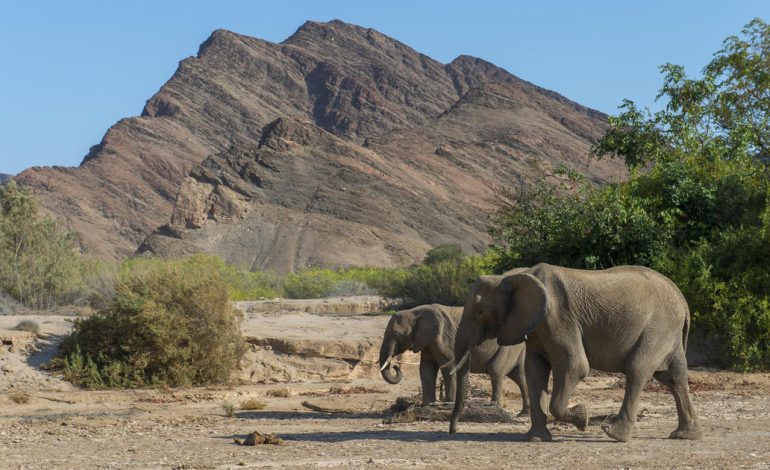Namibia Approves Culling of Hundreds of Animals Amid Severe Drought Crisis

Namibia has authorized the culling of hundreds of animals, including elephants, in a controversial move aimed at addressing acute food insecurity exacerbated by a prolonged drought, CBS News reports.
The initiative is part of a broader drought relief program designed to aid the nearly half of the population suffering from food shortages.
According to the United Nations, about 50% of Namibia’s population is currently facing severe food insecurity, prompting the country’s Ministry of Environment, Forestry and Tourism to announce on Monday that meat from 723 culled animals will be distributed to those in need.
“This exercise [is] necessary and is in line with our constitutional mandate where our natural resources are used for the benefit of Namibian citizens,” the ministry said.
The drought has had devastating effects on agriculture, with the United Nations reporting a 53% decline in cereal production and nearly a 70% reduction in dam water levels. In response to the deteriorating situation, a national state of emergency was declared on May 22.
The culling will be carried out by professional hunters and licensed safari outfitters in designated national parks and communal areas where wildlife populations remain sustainable. The plan specifies the culling of 30 hippos, 60 buffalos, 50 impalas, 100 blue wildebeest, 300 zebras, 83 elephants, and 100 elands.
Officials assert that this culling initiative will not only provide much-needed meat to vulnerable communities but also mitigate the negative impact of the drought on wildlife conservation. As grazing areas and water sources dwindle, competition between wildlife and humans is expected to increase, which could escalate human-wildlife conflicts.
Namibia’s strategy aligns with similar practices in other countries, such as Australia, where officials have permitted the culling of thousands of kangaroos due to food shortages in the wild.
The severe drought currently affecting Namibia is largely attributed to the El Niño phenomenon, characterized by warmer-than-average surface temperatures in the Pacific Ocean, which can have far-reaching effects on global weather patterns. The National Oceanic and Atmospheric Administration has indicated that climate change may worsen the impacts of such phenomena, leading to extreme temperature records.
The World Wildlife Fund says that rising temperatures and unpredictable rainfall pose significant threats to Namibia’s natural resources. As wildlife faces increasing scarcity of food and water, they may encroach upon human settlements, heightening the risks of conflict.
In its announcement regarding the culling plan, Namibian officials referred to recommendations made during the National Conference on Human Wildlife Conflict Management in 2023, which suggested reducing elephant populations to alleviate tensions between humans and wildlife.








